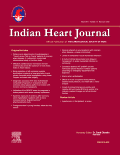
Indian Heart Journal
Scope & Guideline
Elevating Cardiovascular Research to New Heights
Introduction
Aims and Scopes
- Cardiovascular Disease Epidemiology:
Investigation into the prevalence, risk factors, and outcomes of cardiovascular diseases in various populations, particularly in India, to understand regional health challenges. - Interventional Cardiology:
Research focusing on the efficacy and safety of various interventional procedures, including percutaneous coronary interventions, valve replacements, and management of acute coronary syndromes. - Heart Failure Management:
Studies aimed at improving diagnosis, treatment, and outcomes in heart failure patients, emphasizing innovative therapies and management strategies. - Cardiovascular Imaging Techniques:
Exploration of advanced imaging modalities such as echocardiography, MRI, and CT in assessing heart function and pathology to guide clinical decision-making. - Genetic and Biomarker Research:
Investigations into genetic predispositions and biomarkers associated with cardiovascular diseases, focusing on their prognostic and therapeutic implications. - Public Health and Preventive Cardiology:
Research aimed at understanding the social determinants of cardiovascular health and strategies for effective prevention and management in diverse populations.
Trending and Emerging
- Impact of COVID-19 on Cardiovascular Health:
There is a growing body of research examining the effects of COVID-19 on cardiovascular health, particularly in terms of complications and management of cardiovascular diseases during the pandemic. - Telemedicine and Remote Monitoring:
An increasing focus on telemedicine applications and remote patient monitoring technologies highlights the need for innovative solutions in managing cardiovascular diseases, especially in underserved areas. - Integrative Approaches to Cardiology:
Research exploring the integration of cardiology with other fields such as endocrinology and nephrology is on the rise, emphasizing a holistic approach to patient care. - Personalized Medicine and Genomics:
Emerging studies on personalized medicine, including genetic testing and tailored therapies, are becoming more prevalent, indicating a shift towards individualized cardiovascular treatment strategies. - Biomarkers and Novel Therapies:
There is an increasing emphasis on the identification of novel biomarkers and the evaluation of new therapeutic agents, particularly in heart failure and acute coronary syndrome contexts.
Declining or Waning
- Rheumatic Heart Disease Studies:
There has been a noticeable decrease in publications specifically addressing rheumatic heart disease, which may indicate a shift in focus towards more prevalent cardiovascular conditions in modern clinical practice. - Traditional Risk Factor Analysis:
Research centered on traditional cardiovascular risk factors (such as smoking and hypertension) appears to be waning as newer methodologies and risk stratification approaches gain prominence. - Longitudinal Cohort Studies:
Fewer longitudinal studies tracking patient outcomes over extended periods have been published, possibly due to the increasing complexity and resource requirements for such studies.
Similar Journals
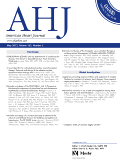
AMERICAN HEART JOURNAL
Exploring Innovations in Heart Health since 1925AMERICAN HEART JOURNAL, published by MOSBY-ELSEVIER, stands at the forefront of cardiovascular research, encompassing a vast array of studies focused on heart health, cardiology, and related medical therapies. Established in 1925 and set to continue its legacy into 2024, this esteemed journal holds a prestigious Q1 ranking in the category of Cardiology and Cardiovascular Medicine, reflecting its commitment to quality and significant influence in the field, as evidenced by its 85th percentile ranking in Scopus. With a dedicated readership of researchers, clinicians, and students, the journal serves as a critical platform for sharing groundbreaking findings, innovative techniques, and comprehensive reviews that strive to advance cardiovascular science. Although it does not currently offer open access, the AMERICAN HEART JOURNAL remains an indispensable resource for anyone invested in the evolution and improvement of heart health.

Research in Cardiovascular Medicine
Championing open access to vital cardiovascular findings.Research in Cardiovascular Medicine is a renowned open-access journal published by Wolters Kluwer Medknow Publications, dedicated to advancing knowledge in the swiftly evolving field of cardiovascular health. With an ISSN of 2251-9572 and E-ISSN of 2251-9580, this journal serves as a vital platform for researchers and professionals to share their findings, explore innovative treatments, and discuss current trends in cardiovascular care. Since transitioning to open access in 2013, it has democratized access to high-quality research, ensuring that vital information reaches healthcare practitioners and academia alike. The journal’s commitment to rigorous peer review and its emphasis on cutting-edge research contribute significantly to improving patient outcomes and addressing the global burden of cardiovascular diseases. By publishing original articles, review papers, and clinical studies, Research in Cardiovascular Medicine plays a crucial role in shaping the future of cardiovascular research and education, appealing to a wide audience of researchers, professionals, and students striving to make meaningful contributions to this critical field.
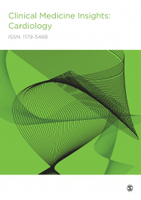
Clinical Medicine Insights-Cardiology
Delivering Essential Insights for Cardiovascular ExcellenceClinical Medicine Insights-Cardiology is a prestigious open-access journal published by SAGE Publications Ltd, focusing on cutting-edge research in the field of cardiology and cardiovascular medicine. With the ever-evolving landscape of cardiovascular health, this journal serves as a vital platform for disseminating significant findings, clinical practices, and innovative therapies. Established in 2007, it has rapidly gained recognition, currently ranked in the Q2 category for cardiology, positioned at #112 out of 387 in Scopus Rankings, and boasting a commendable 71st percentile. The journal not only emphasizes the integration of recent advancements in clinical and laboratory studies but also aims to bridge the gap between research and practice, making it an essential resource for researchers, healthcare professionals, and students alike. Situated in New Zealand and operating with an open-access model, Clinical Medicine Insights-Cardiology promotes the unrestricted dissemination of knowledge, ensuring that critical insights into cardiovascular medicine are accessible globally.
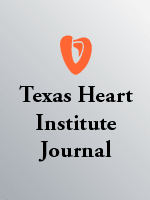
TEXAS HEART INSTITUTE JOURNAL
Driving Progress in Cardiovascular Medicine Since 1982.TEXAS HEART INSTITUTE JOURNAL, published by the renowned Texas Heart Institute, stands as a pivotal resource in the field of cardiology and cardiovascular medicine. With a history spanning over four decades since its establishment in 1982, this journal addresses a wide range of topics within its scope, including clinical studies, innovative treatments, and groundbreaking research in heart health. Despite its Q3 ranking in both Cardiology and Cardiovascular Medicine, the journal is committed to fostering advancement in medical knowledge and practice, providing an essential platform for healthcare professionals and researchers alike. While currently lacking open access, the journal is recognized for its contributions to the field, aiming to illuminate critical healthcare discussions and promote the exchange of ideas. For those interested in staying at the forefront of cardiovascular research, TEXAS HEART INSTITUTE JOURNAL offers invaluable insights and the latest developments shaping the future of heart care.

ARCHIVOS DE CARDIOLOGIA DE MEXICO
Fostering innovation in heart health, one article at a time.ARCHIVOS DE CARDIOLOGIA DE MEXICO is a premier open-access journal dedicated to advancing research and clinical practice in the field of cardiology and cardiovascular medicine. Published by the Instituto Nacional de Cardiología Ignacio Chávez since 2001, this journal offers a valuable platform for the dissemination of high-quality, peer-reviewed articles that span diverse aspects of cardiovascular health. With its current categorization in the fourth quartile (Q4) of cardiology journals and a Scopus rank of #319 out of 387, ARCHIVOS DE CARDIOLOGIA DE MEXICO is positioned within the dynamic landscape of cardiovascular research, presenting opportunities for both emerging and established voices in the field. It aims to promote discussion and innovation across various topics in cardiology, making it a crucial resource for researchers, healthcare professionals, and students keen on keeping abreast of developments in cardiovascular science. Accessible online since 2009, this journal fosters collaboration and knowledge sharing among specialists worldwide, establishing itself as a significant contributor to the global discourse on heart health.

Revista de la Federacion Argentina de Cardiologia
Elevating standards in cardiology one study at a time.Revista de la Federacion Argentina de Cardiologia is a vital publication in the field of Cardiology and Cardiovascular Medicine, providing a platform for researchers and healthcare professionals to share significant findings and innovative concepts since its inception in 2012. Published by the Federacion Argentina Cardiology, this journal specifically addresses contemporary issues and advancements within cardiology, contributing to the scholarly dialogue essential for improving cardiovascular health. Despite being categorized in the Q4 quartile for 2023 and presently ranking #358 out of 387 in its field, the journal remains committed to fostering academic inquiry and disseminating valuable research for both local and global audiences. Although it is not an open-access journal, it strives to balance accessibility with rigorous academic standards, ensuring quality contributions that are critical for practitioners and students alike. The journal’s ongoing evaluation and adaptation in the ever-evolving landscape of cardiology underscore its importance in advancing cardiovascular science and practice.

Cardiology Journal
Empowering global research in cardiology.Cardiology Journal, published by VIA MEDICA, stands as a prominent resource in the field of cardiology and cardiovascular medicine, with an ISSN of 1897-5593 and an E-ISSN of 1898-018X. Recognized for its Open Access model established since 1994, this journal facilitates widespread dissemination of critical research findings, allowing practitioners and researchers globally to access valuable insights without barriers. Based in Poland, with an address at UL SWIETOKRZYSKA 73, 80-180 GDANSK, it has achieved a respectable Q2 classification in 2023 for both Cardiology and Miscellaneous Medicine categories, reflecting its influence and quality within the scholarly community. With a Scopus ranking placing it at #117 out of 387 in Cardiology, it lies within the 69th percentile, underpinning its commitment to advancing knowledge in cardiovascular health. The journal’s converged years extending from 2006 to 2024 ensure it captures ongoing developments in a rapidly evolving field. As such, the Cardiology Journal serves as an indispensable platform for researchers, professionals, and students dedicated to exploring the frontiers of cardiac science and improving patient care.
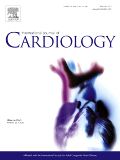
International Journal of Cardiology
Leading the Charge in Heart Health InnovationsThe International Journal of Cardiology is a premier publication in the field of Cardiology and Cardiovascular Medicine, published by Elsevier Ireland Ltd. With an impressive impact factor and ranked in the top quartile (Q1) of its category, this journal serves as a vital resource for researchers, clinicians, and scholars committed to advancing cardiovascular health. Founded in 1981, the journal has been pivotal in disseminating significant findings, with a wide-ranging scope that includes original research, reviews, and clinical studies aimed at improving patient outcomes and understanding heart diseases. Its robust ranking of #73 out of 387 in Scopus ensures that it remains a leading platform for impactful cardiovascular research. While currently not an open-access publication, the journal's commitment to quality and relevance makes it an essential reference point within an ever-evolving medical landscape. For those engaged in cardiovascular research, the International Journal of Cardiology is not just a journal; it's an indispensable source of knowledge shaping the future of heart health.
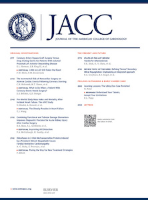
JOURNAL OF THE AMERICAN COLLEGE OF CARDIOLOGY
Empowering Clinicians with Cutting-Edge Cardiac ResearchJOURNAL OF THE AMERICAN COLLEGE OF CARDIOLOGY, the esteemed publication of Elsevier Science Inc, stands as a premier platform for advancing knowledge in the field of cardiology and cardiovascular medicine. With an impressive impact factor reflecting its prominence—ranked Q1 in its category for 2023 and occupying the 4th position out of 387 in the Scopus listings, firmly placing it in the 99th percentile—this journal is essential for researchers, clinicians, and students alike. Since its inception in 1983, it has continuously provided a vital space for high-quality research and innovative clinical practices, driving forward our understanding of cardiovascular health. While access options are not open, the value of the cutting-edge articles published here cannot be overstated, as they foster collaboration and inform better patient care across the globe. As part of its ongoing commitment to excellence, the journal solicits submissions of original research, reviews, and clinical studies that contribute meaningfully to the field and engage its diverse readership.

CANADIAN JOURNAL OF CARDIOLOGY
Transforming Cardiology with High-Impact ResearchCanadian Journal of Cardiology (ISSN: 0828-282X, E-ISSN: 1916-7075), published by Elsevier Science Inc, serves as a vital platform for disseminating high-quality research in the dynamic field of cardiology and cardiovascular medicine. Since its inception in 1985, this journal has established itself as a leader in the field, currently holding a prestigious Q1 ranking in Cardiology, indicating its significant impact and contribution to medical science. With a Scopus rank of #50 out of 387 in its category and placing in the 87th percentile, the journal showcases rigorous peer-reviewed articles that advance knowledge and practice in cardiology. Although the journal is not open access, it provides valuable insights and research findings that cater to clinicians, researchers, and students who are committed to improving cardiovascular health. As we approach the convergence of years to 2024, the Canadian Journal of Cardiology continues to strive for excellence, facilitating a discourse vital for both academic and clinical advancements in cardiology.